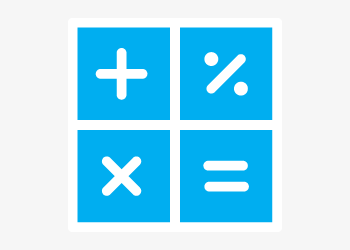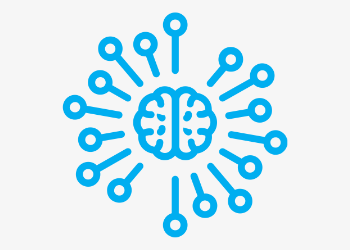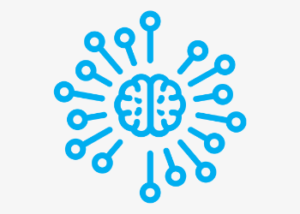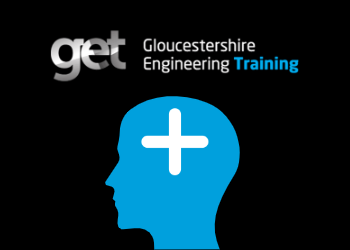Learning Difficulties
Learn about the various learning difficulties, how to spot them and how we can help.
Learning Difficulties Guidance
Learn about the various learning difficulties, how to spot them and how we can help.
Dyslexia
Dyslexia literally means “difficulty with words”. It affects one in ten of us, some more than others, and famous dyslexics include Jamie Oliver and Richard Branson.
Take a look at the following and see if you recognise any of these indicators:
- You often have difficulty with reading, writing and spelling. It takes you longer to do these things and you have to work harder than others.
- Working with numbers, directions and short-term memory may also be affected.
- You may be much better at talking than you are at writing.
- You learn best by being “hands on” and trying things out.
- You are often very good at other stuff like art, drama, music, sports, mechanics, story-telling, sales, business, designing, building, or engineering.
- You may get fed up at school as you fall behind in some subjects, or get told you’re not trying even when you are.
If you think you have dyslexia, speak to your tutor or your employer, GET can arrange for an external company to test you for dyslexia.
If you have Dyslexia, you should get educational support. This support aims to help overcome the problems Dyslexia brings, for example, to improve your reading speed. People with Dyslexia achieve just as highly as those without Dyslexia, but you need the right support. So don’t sit in silence and get frustrated if you think you may be affected.

Dyslexia

Dyslexia literally means “difficulty with words”. It affects one in ten of us, some more than others, and famous dyslexics include Jamie Oliver and Richard Branson.
Take a look at the following and see if you recognise any of these indicators:
- You often have difficulty with reading, writing and spelling. It takes you longer to do these things and you have to work harder than others.
- Working with numbers, directions and short-term memory may also be affected.
- You may be much better at talking than you are at writing.
- You learn best by being “hands on” and trying things out.
- You are often very good at other stuff like art, drama, music, sports, mechanics, story-telling, sales, business, designing, building, or engineering.
- You may get fed up at school as you fall behind in some subjects, or get told you’re not trying even when you are.
If you think you have dyslexia, speak to your tutor or your employer, GET can arrange for an external company to test you for dyslexia.
If you have Dyslexia, you should get educational support. This support aims to help overcome the problems Dyslexia brings, for example, to improve your reading speed. People with Dyslexia achieve just as highly as those without Dyslexia, but you need the right support. So don’t sit in silence and get frustrated if you think you may be affected.

Dyscalculia
Dyscalculia is usually perceived of as a specific learning difficulty for Mathematics, or more appropriately, arithmetic.
Typical symptoms of Dyscalculia/Mathematical learning difficulties:
- Has difficulty when counting backward.
- Has a poor sense of numbers and estimation.
- Has difficulty in remembering ‘basic’ facts, despite many hours of practice/rote learning.
- Has no strategies to compensate for lack of recall, other than to use counting.
- Has difficulty in understanding place value and the role of zero in the Arabic/Hindu number system.
- Has no sense of whether any answers that are obtained are right or nearly right.
- Tends to be slower to perform calculations.
- Forgets mathematical procedures, especially as they become more complex, for example, ‘long’ division.
- Addition is often the default operation. The other operations are usually very poorly executed (or avoided altogether).
- Avoids tasks that are perceived as difficult and likely to result in a wrong answer.
- Weak mental arithmetic skills.
- High levels of Mathematics anxiety.
If you think you have Dyscalculia, speak to your tutor or your employer, GET can arrange for an external company to test you for Dyscalculia.
Dyscalculia

Dyscalculia is usually perceived of as a specific learning difficulty for Mathematics, or more appropriately, arithmetic.
Typical symptoms of Dyscalculia/Mathematical learning difficulties:
- Has difficulty when counting backward.
- Has a poor sense of numbers and estimation.
- Has difficulty in remembering ‘basic’ facts, despite many hours of practice/rote learning.
- Has no strategies to compensate for lack of recall, other than to use counting.
- Has difficulty in understanding place value and the role of zero in the Arabic/Hindu number system.
- Has no sense of whether any answers that are obtained are right or nearly right.
- Tends to be slower to perform calculations.
- Forgets mathematical procedures, especially as they become more complex, for example, ‘long’ division.
- Addition is often the default operation. The other operations are usually very poorly executed (or avoided altogether).
- Avoids tasks that are perceived as difficult and likely to result in a wrong answer.
- Weak mental arithmetic skills.
- High levels of Mathematics anxiety.
If you think you have Dyscalculia, speak to your tutor or your employer, GET can arrange for an external company to test you for Dyscalculia.
Dyspraxia
Developmental Coordination Disorder (DCD), also known as Dyspraxia in the UK, is a common disorder affecting fine and/or gross motor coordination in children and adults. DCD is distinct from other motor disorders such as Cerebral Palsy and Stroke.
An individual’s coordination difficulties may affect participation and functioning of everyday life skills in education, work and employment. Children may present with difficulties with self-care, writing, typing, riding a bike, play as well as other educational and recreational activities. In adulthood many of these difficulties will continue, as well as learning new skills at home, in education and work, such as driving a car and DIY.
There may be a range of co-occurring difficulties which can also have serious negative impacts on daily life. These include social emotional difficulties as well as problems with time management, planning and organisation and these may impact an adult’s education or employment experiences.
If you think you have Dyspraxia, speak to your tutor or your employer, GET can arrange for an external company to test you for Dyspraxia.

Dyspraxia

Developmental Coordination Disorder (DCD), also known as Dyspraxia in the UK, is a common disorder affecting fine and/or gross motor coordination in children and adults. DCD is distinct from other motor disorders such as Cerebral Palsy and Stroke.
An individual’s coordination difficulties may affect participation and functioning of everyday life skills in education, work and employment. Children may present with difficulties with self-care, writing, typing, riding a bike, play as well as other educational and recreational activities. In adulthood many of these difficulties will continue, as well as learning new skills at home, in education and work, such as driving a car and DIY.
There may be a range of co-occurring difficulties which can also have serious negative impacts on daily life. These include social emotional difficulties as well as problems with time management, planning and organisation and these may impact an adult’s education or employment experiences.
If you think you have Dyspraxia, speak to your tutor or your employer, GET can arrange for an external company to test you for Dyspraxia.

ADHD
ADHD, also known as Attention Deficit Hyperactivity Disorder, is a neurodevelopmental disorder. People with ADHD may often seem less attentive, have difficulty understanding of instructions and may act on impulse.
If no hyperactivity is present, the term Attention Deficit Disorder (ADD) used to be used, but this is now referred to as Inattentive ADHD. These individuals have particular problems remaining focused so may appear ‘dreamy’ and not paying attention.
People with Impulsive ADHD may be:
- Restless
- Impulsive
- Erratic
- Unpredictable
- Using inappropriate behaviour
- Blurting out inappropriate comments
- Interrupting excessively
People with Inattentive ADHD may be:
- Appearing ‘Dreamy’
- Unfocused
- Easily distracted
- Lose track of what they are doing
- Poor listening skills
- Missing key points during explanations
- Difficulty recalling information on demand
If you think you have ADHD, speak to your tutor or your employer, GET can arrange for an external company to test you for ADHD.
ADHD

ADHD, also known as Attention Deficit Hyperactivity Disorder, is a neurodevelopmental disorder. People with ADHD may often seem less attentive, have difficulty understanding of instructions and may act on impulse.
If no hyperactivity is present, the term Attention Deficit Disorder (ADD) used to be used, but this is now referred to as Inattentive ADHD. These individuals have particular problems remaining focused so may appear ‘dreamy’ and not paying attention.
People with Impulsive ADHD may be:
- Restless
- Impulsive
- Erratic
- Unpredictable
- Using inappropriate behaviour
- Blurting out inappropriate comments
- Interrupting excessively
People with Inattentive ADHD may be:
- Appearing ‘Dreamy’
- Unfocused
- Easily distracted
- Lose track of what they are doing
- Poor listening skills
- Missing key points during explanations
- Difficulty recalling information on demand
If you think you have ADHD, speak to your tutor or your employer, GET can arrange for an external company to test you for ADHD.
Coping Strategies
It must be emphasised that individuals vary greatly in their Specific Learning Difficulties profile. Key variables are the severity of the difficulties and the ability of the individual to identify and understand their difficulties and successfully develop and implement coping strategies.
By adulthood, many people with Specific Learning Disabilities are able to compensate through technology, reliance on others, and an array of self-help mechanisms – the operation of which requires sustained effort and energy. Unfortunately, these strategies are prone to break down under stressful conditions which impinge on areas of weakness.
Coping Strategies
It must be emphasised that individuals vary greatly in their Specific Learning Difficulties profile. Key variables are the severity of the difficulties and the ability of the individual to identify and understand their difficulties and successfully develop and implement coping strategies.
By adulthood, many people with Specific Learning Disabilities are able to compensate through technology, reliance on others, and an array of self-help mechanisms – the operation of which requires sustained effort and energy. Unfortunately, these strategies are prone to break down under stressful conditions which impinge on areas of weakness.
We're here to help
If you feel you may symptoms of any of the above then please do not hesitate to get in touch. We will do our best to ensure you receive the accommodation needed throughout your apprenticeship journey with us. Fill out our contact form and a member of staff will follow-up with you as soon as possible.
*PLEASE NOTE* – By submitting you consent to our Privacy Policy.
Other Useful Resources

Learning Difficulties Guidance
Learn about the various learning difficulties, how to spot them and how we can help.

Health and Well-being
Tips on how to look after yourself physically and who to contact for expert advice.

Learning Difficulties Guidance
Learn about the various learning difficulties, how to spot them and how we can help.

Health and Well-being
Tips on how to look after yourself physically and who to contact for expert advice.

Know your rights - Maternity and Paternity
Learn about how Apprentices fit into the Equality Act 2010 and how we can help support your learning experience if you or your partner becomes pregnant during your apprenticeship

Know your rights - Maternity and Paternity
Learn about how Apprentices fit into the Equality Act 2010 and how we can help support your learning experience if you or your partner becomes pregnant during your apprenticeship
Latest news
Read the latest articles about GET, our apprentices/students and their respective employers.
Latest news
Read the latest articles about GET, our apprentices/students and their respective employers.

